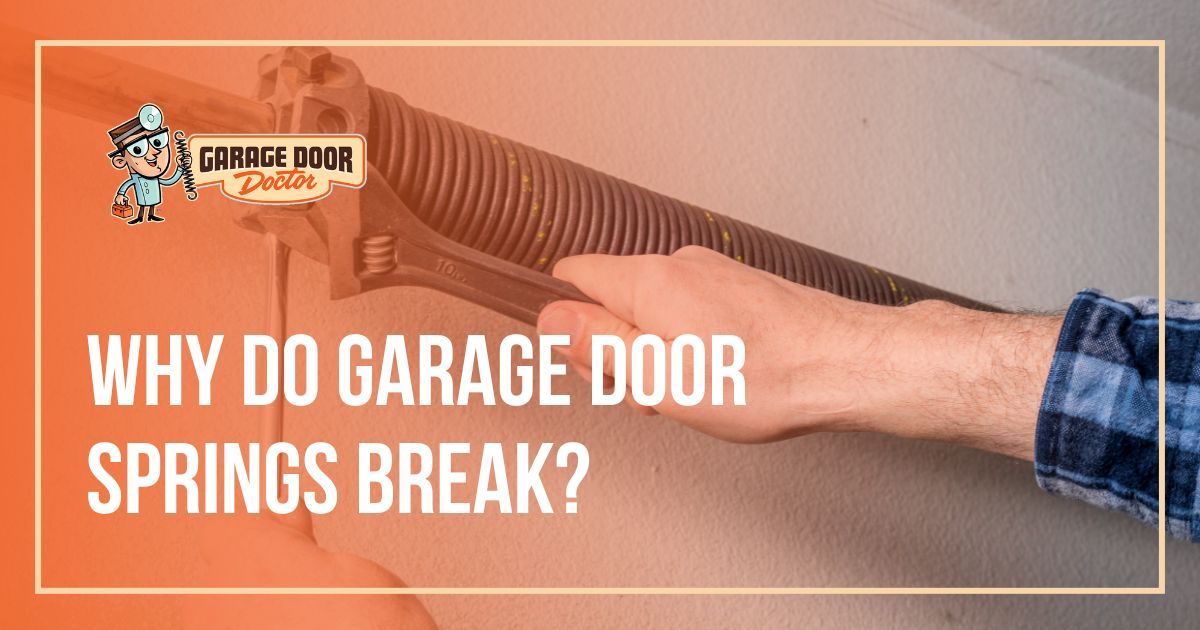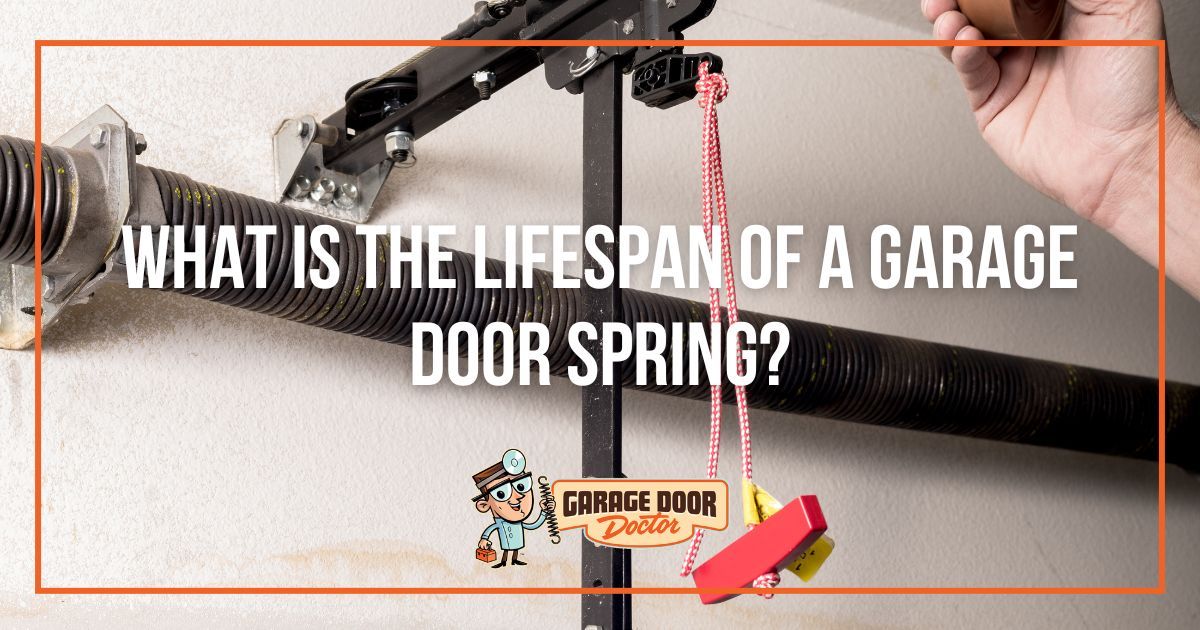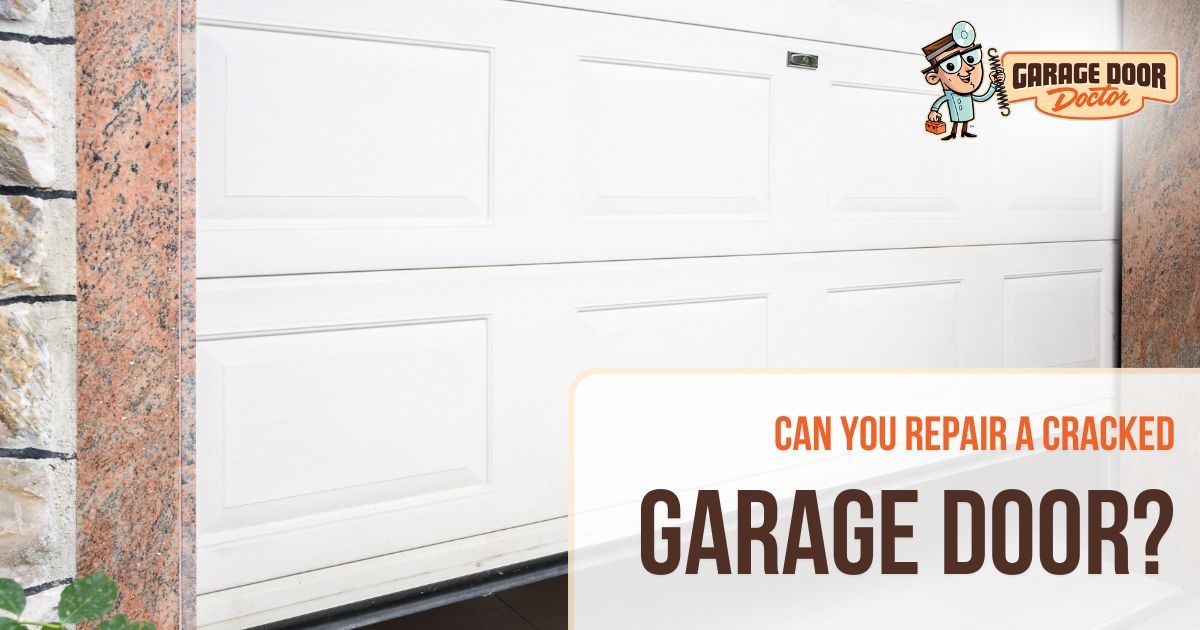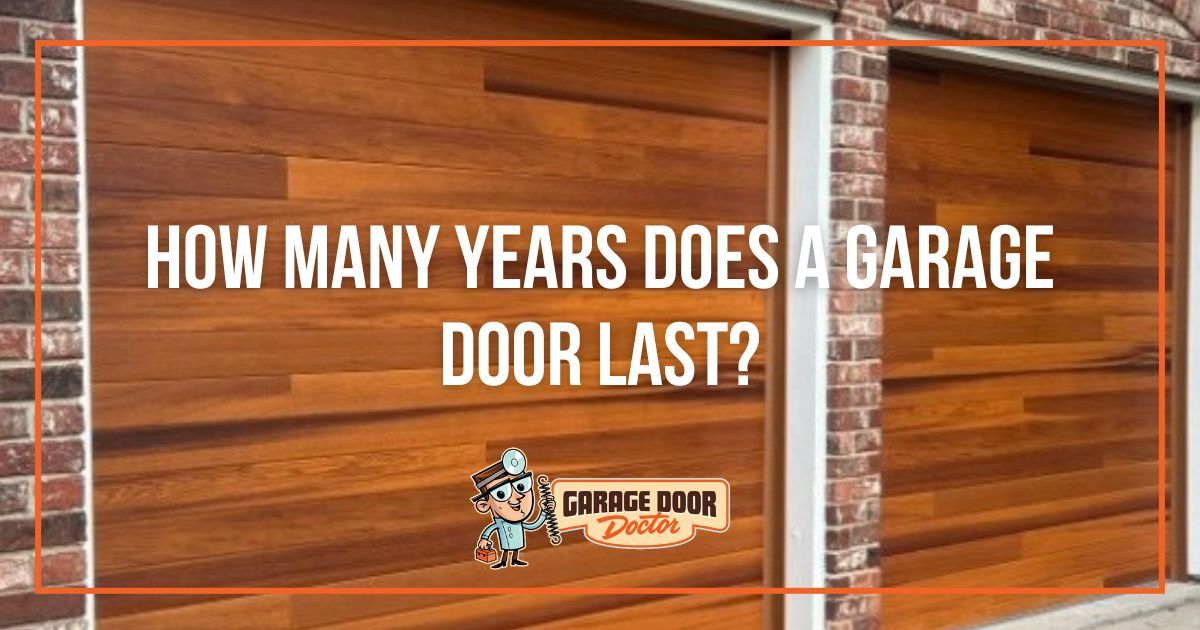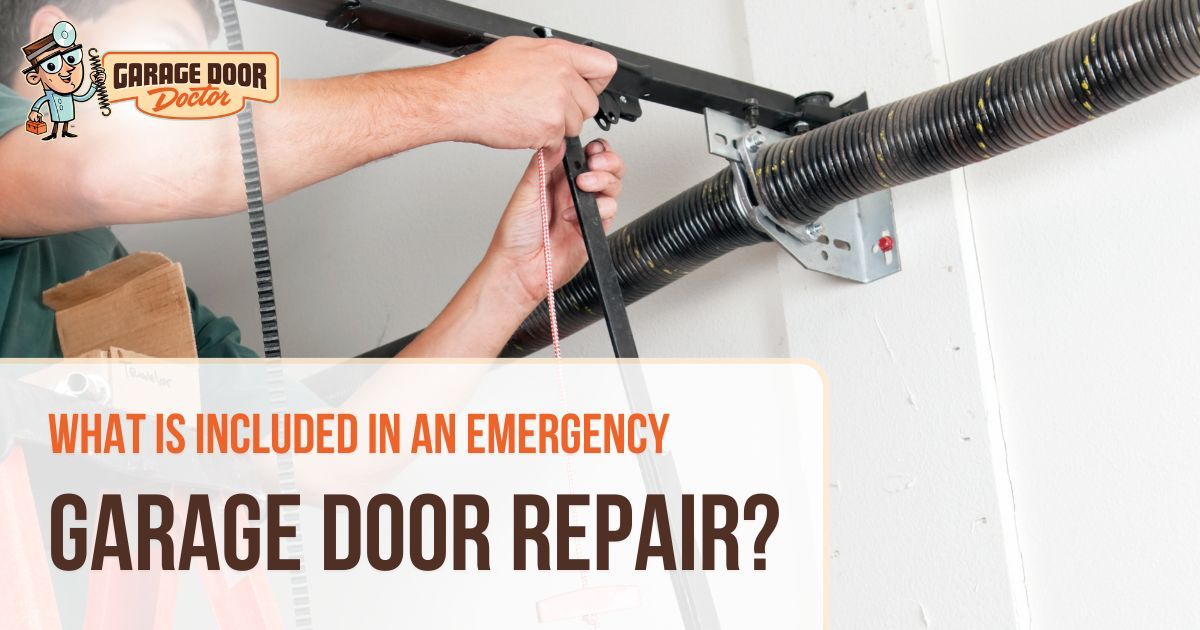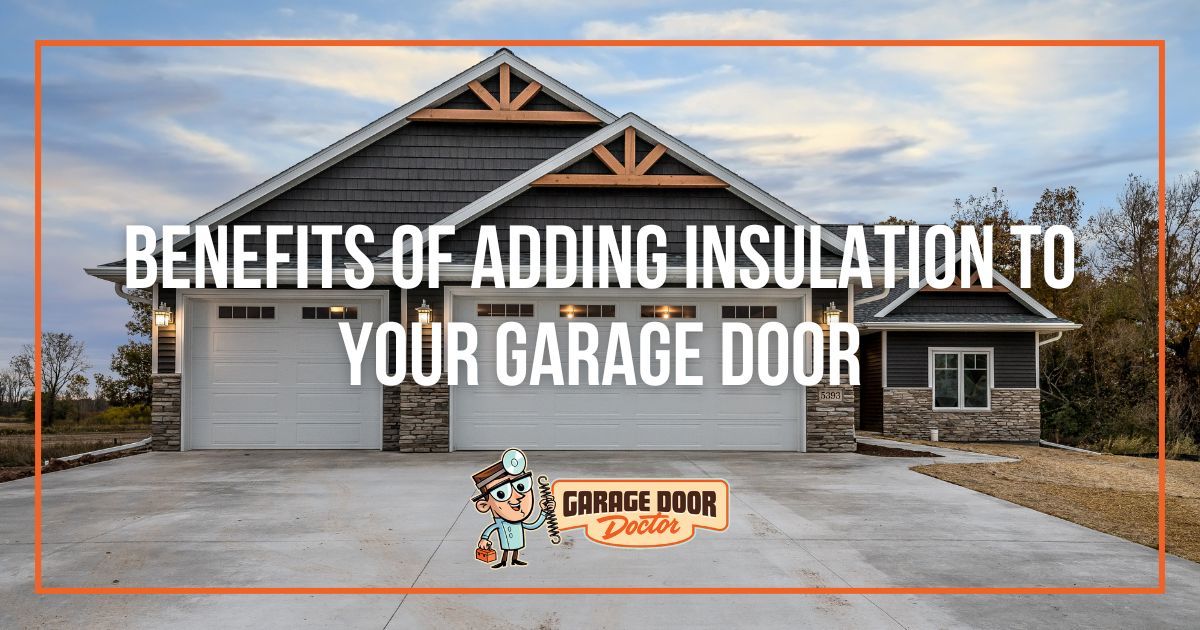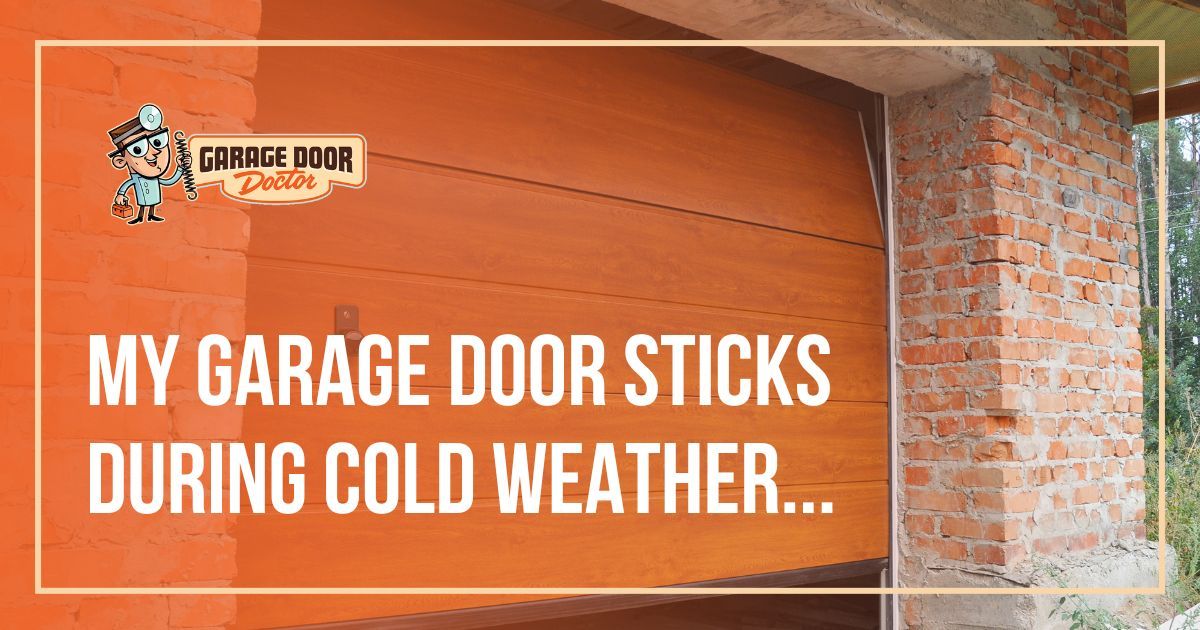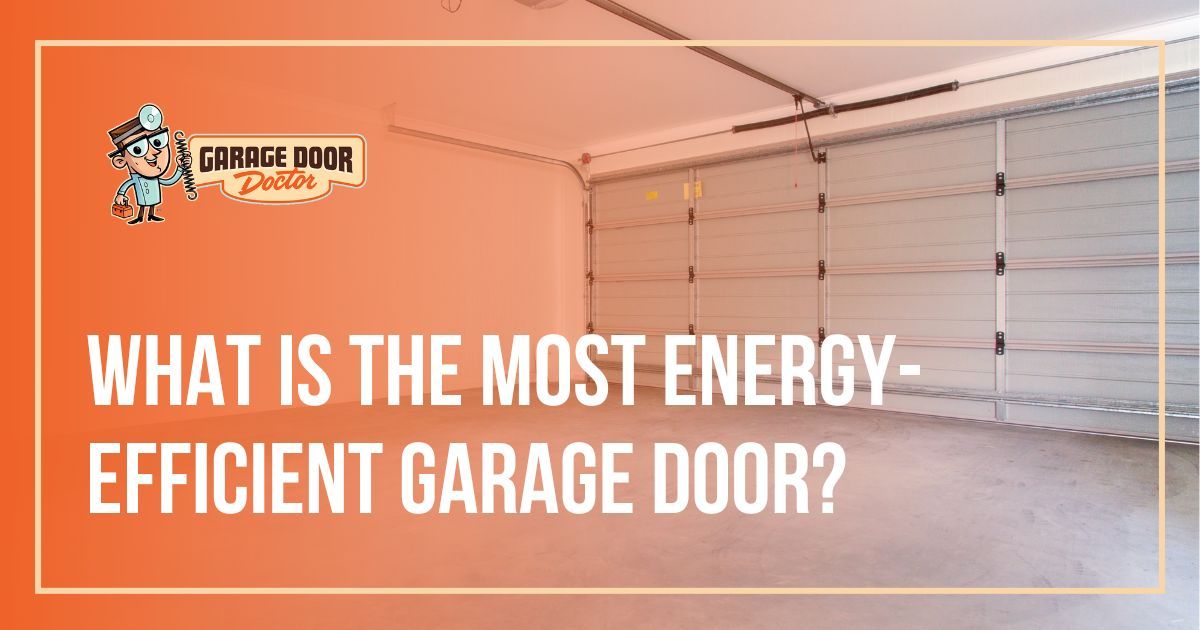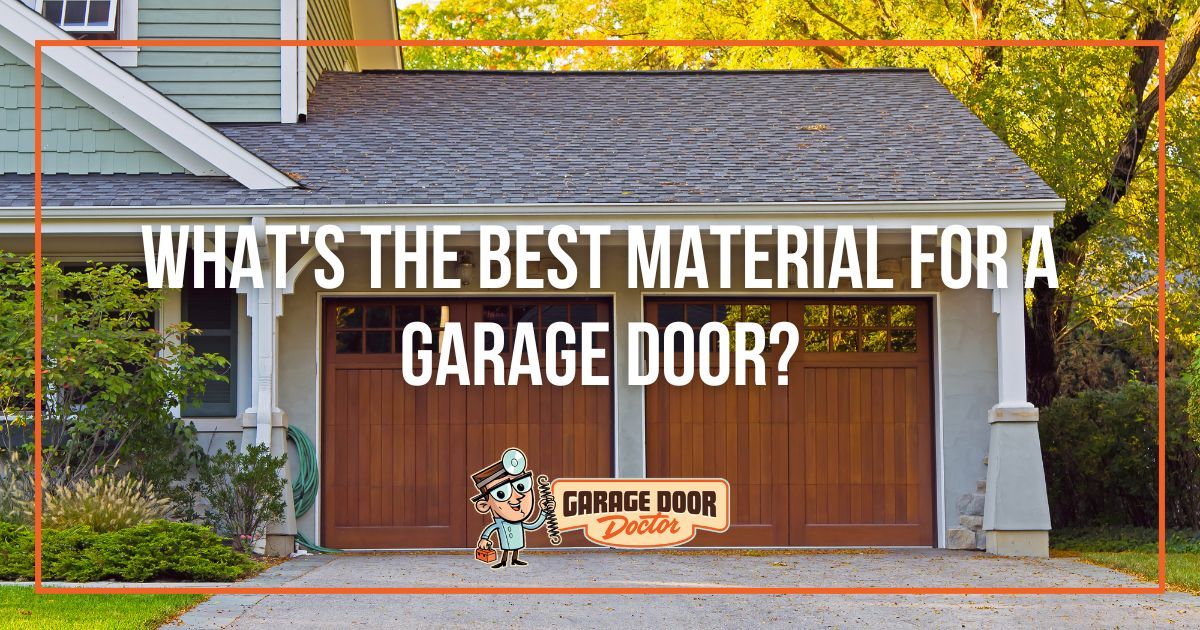Why Do Garage Door Springs Break?
Springs are one of the most important metal components in garage door systems. Despite their importance, these parts sometimes break, preventing you from using your garage door opener to operate the doors. You could even struggle to open the door manually, which isn’t advisable under such conditions.
So, why do garage door springs break? Our experts at Garage Door Doctor explain everything you should know about why springs fail and what you can do to minimize the risk.
Types of Garage Springs
Before learning why garage door springs sometimes break, you should know the two primary types. Extension springs are systems that installers mount on either side of the garage door track. As the door opens and closes, a system of cables and pulleys expands and contracts the components.
The torsion variety consists of tightly wound springs on a steel shaft that sit horizontally above the garage door opening. Cable drums on both ends of the shaft help operate the system.
Common Causes of Broken Garage Door Springs
Why do garage door springs break? These are the most common reasons.
High Tension on Springs
Too much tension on a spring can cause them to snap. Excessive stress leads to weakness, even though these tempered steel components can bear a lot of weight.
Wear and Tear
The design and production of these metal parts allow them to work for a certain number of cycles. As they approach the end of their lifespan, their performance will suffer. Cracks or breaks within the coils are clear indicators of impending failure.
Extreme Weather Conditions
High humidity levels promote rust and corrosion in metal. A spring is no exception. A rusty spring is more likely to snap than one without corrosion issues.
These parts are also susceptible to premature breakage due to temperature fluctuation that causes them to expand and contract too often. Cracks can form under these conditions.
Improper Installation
If somebody installs or adjusts a spring incorrectly, it can compromise its performance and safety. Uneven weight distribution and misalignment on the door could occur before total failure.
Helpful Article: How To Know When Your Garage Door Springs Need To Be Repaired 🔗
What Happens to Garage Door Systems With Faulty Springs?
A damaged spring means you have a broken garage door. You can’t open and close it manually because it is too heavy. The likelihood of an open door crashing down and causing a severe injury is too high with broken extension or torsion springs.
Warning signs of a broken spring include:
- A crooked or unbalanced door
- Unusual sounds, like a loud bang, from the garage
- Loose cables
- Visually broken garage door spring
- Jerking motions during operations
- Slow operation
How To Avoid Broken Springs
Now that you know the answer to ” Why do garage door springs break?” it’s important to learn how to care for these components to ensure door functionality and avoid serious injury.
Here is what you need to do:
Get Professional Inspections
Like other systems in your home, your garage door needs annual inspections from a trained professional. A local garage door company, like Garage Door Doctor, has the necessary tools and experience to assess door any spring for signs of damage or faulty installation.
Provide Regular Maintenance
Garage door springs will eventually break, but that doesn’t mean you don’t have to maintain them. Proper maintenance will extend the components’ lifespan and prevent operational challenges with the garage door.
Check the tension of each spring regularly. If something seems off, contact a technician to adjust it. To prevent sudden breakage, you should also apply a silicone-based lubricant, such as white lithium grease, several times a year.
At least once a season, you should assess the door’s balance. To do so, pull the emergency release cord to switch the garage door system to manual mode.
Lift the door halfway, and then carefully let it go. If the door sags instead of remaining completely still, your garage door springs may need replacement or adjustment.
Contact Our Local Overhead Door Company for More Help With Your Garage Door Springs
Why do garage door springs break? Spring breakage occurs for many reasons, including extreme temperature changes, excessive spring tension, and normal wear and tear. When it happens to you, turn to our experts at Garage Door Doctor for spring replacement.
As one of Indianapolis’s top garage door service providers, our technicians can expertly repair and install new springs and ensure their functionality. Your safety is our top priority. We have the proper training to address any issue within your system, including door springs and garage door motors.
Avoid further damage to your garage door. Call Garage Door Doctor today at 317-342-4995.

